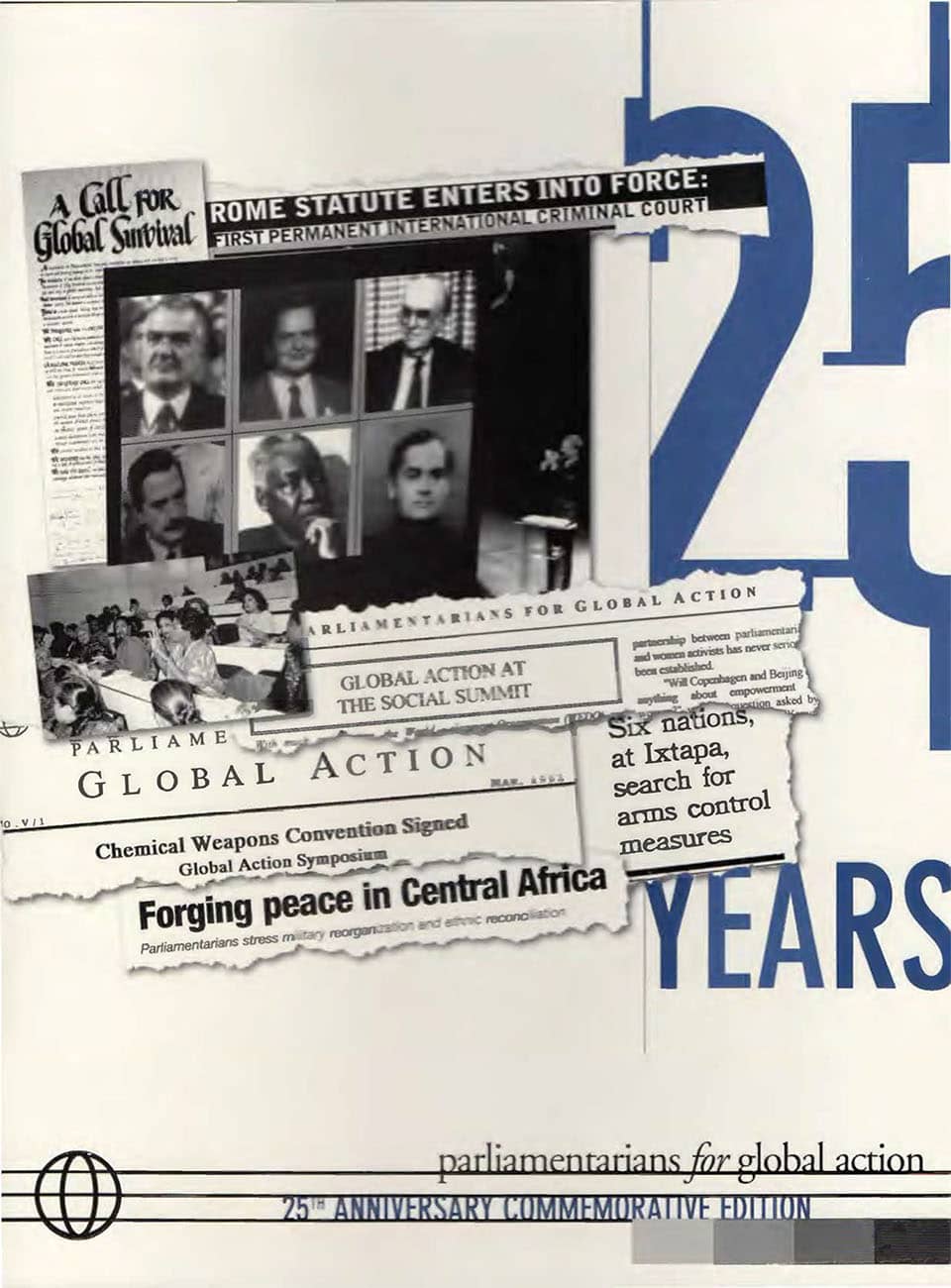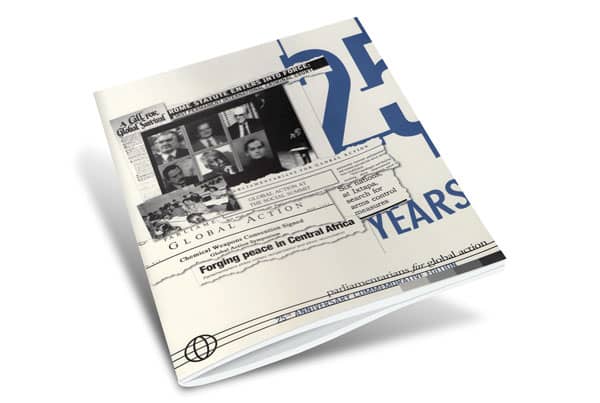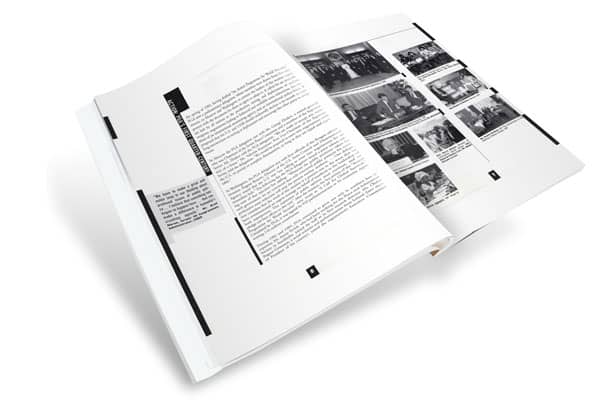Publication

25th Anniversary Commemorative Publication
This publication shares highlights how PGA's global network of legislators has been a powerful and effective force for peace and progress.
Description
Parliamentarians for Global Action (PGA), the world’s only international network of democratically elected national legislators, was created 25 years ago to give parliamentarians a greater voice in international issues. From the organization’s earliest days (it was originally named Parliamentarians for World Order) it has concerned itself with such global issues as peace and disarmament, development, environment, international law and human rights. However, during the final decade of the cold war with tensions between the East and West at their most intense, those issues were largely overshadowed by concerns about the risks posed by the nuclear arms race. At that time the United States and the Soviet Union had between them a nuclear arsenal equivalent to one million Hiroshima bombs, and many felt grave concern that unless that arsenal was sharply curtailed, planet Earth had little chance of survival.
PGA and its members initiated several efforts to compel the superpowers to agree on banning all testing of nuclear weapons, including sending a high-level delegation of legislators from five continents to Moscow and Washington in 1982 to bring a disarmament proposal directly to the leaders in each capital. In 1984 PGA was instrumental in organizing the Six-Nation Peace Initiative, led by heads of governments which is widely credited with making possible the Comprehensive Test Ban Treaty 12 years later. For its contribution to the initiative, PGA received the Indira Gandhi Peace Prize in 1986. PGA also promoted the Nuclear Nonproliferation Treaty and the treaty banning chemical weapons With the end of the cold war in 1989, PGA broadened its scope and embarked on programs seeking to make a difference in the areas of sustainable development and population, conflict resolution, strengthening democratic institutions, human rights and the rule of law. PGA campaigned effectively for the United Nations to set up courts to bring war criminals to justice in Rwanda and the former Yugoslavia. It also played a leadership role in the creation of the International Criminal Court, from placing the issue on the international agenda to actively promoting ratification of the court Statute by national parliaments.
To enhance the organization’s peacemaking capacity, PGA created, in 1991, a Task Force on Peace and Democracy to help resolve political crises in emerging democracies, mainly focused on Africa. The Task Force parliamentary delegations were dispatched to many countries, including Burundi, Côte d’Ivoire, Tanzania, Togo, Haiti and the former Yugoslavia, where they helped resolve a variety of disputes, many involving issues of power sharing and the rights of minorities.
PGA members have mobilized parliamentary consensus on controversial issues raised by the United Nations’ development conferences of the 1990s - including global warming and other environmental concerns, population policy and women’s empowerment - and helped rally support for government efforts to implement the policies endorsed by those conferences. PGA organized programs to build legislative capacity in several African countries in support of the action program of the Cairo Population Conference and created information networks to promote the political empowerment of women.
At the end of its first quarter century, PGA has demonstrated that the concept on which it is based - that a results-oriented global network of legislators can be a powerful and effective force for peace and progress - is both valid and sustainable. It has also shown that the need for the work done by PGA and its members has never been greater.
PDF(s)
Additional Details
- Publication Type: Report
- Publication Date: 2003
- Author(s): PGA





